Fractal Design Edison M Series 750W Power Supply Review
Why you can trust Tom's Hardware
Packaging, Contents, Exterior And Cabling
Packaging
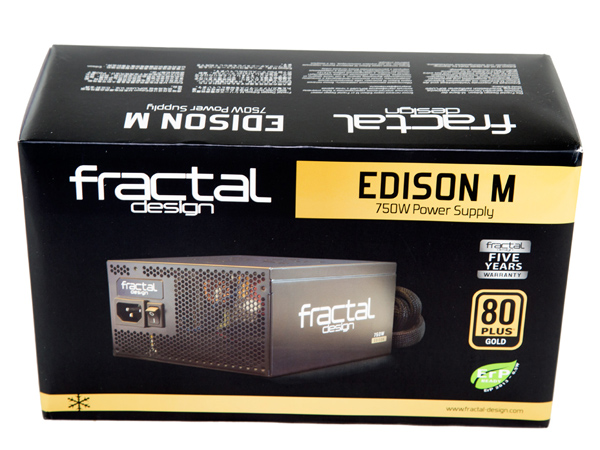
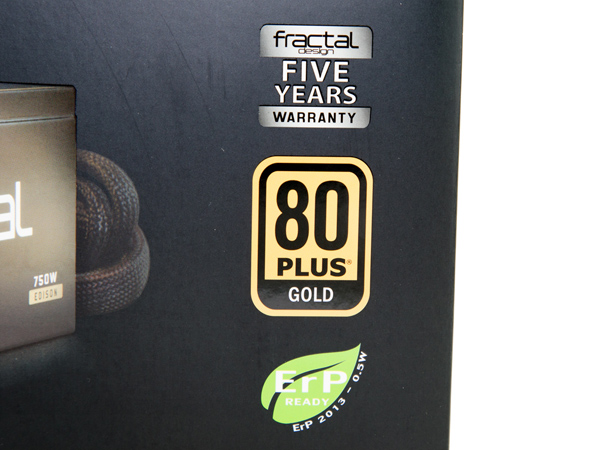
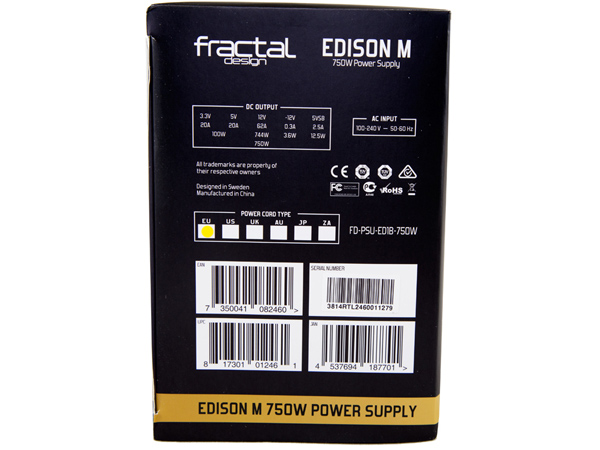
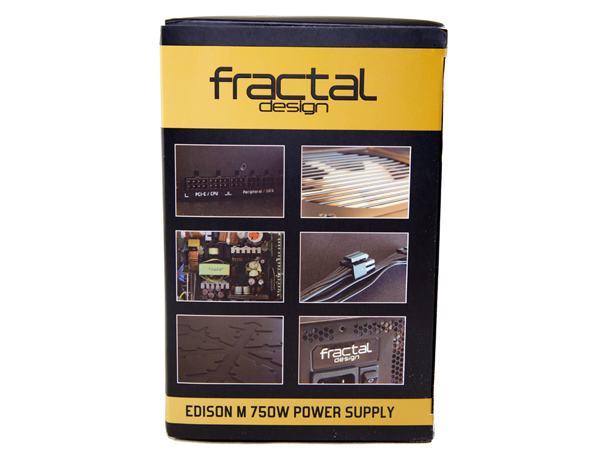
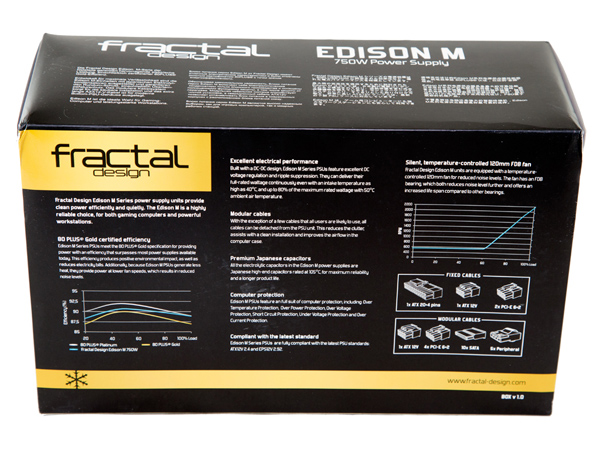
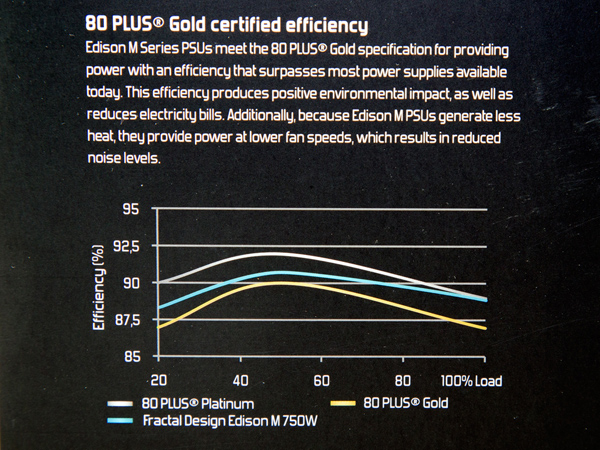
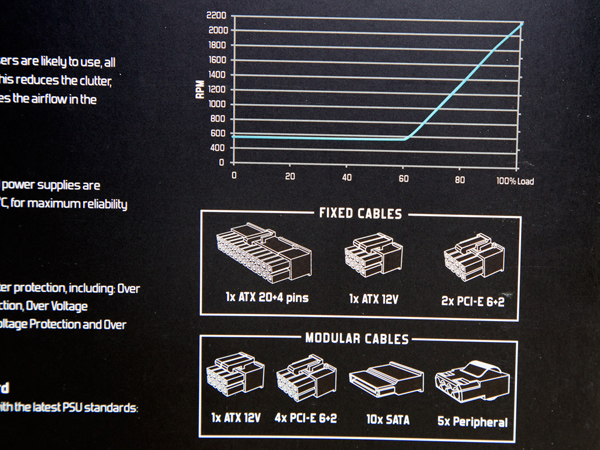
The box that the Edison M series PSU comes in is pretty small. On the front we find an angled shot of the PSU along with three icons depicting the 80 PLUS Gold efficiency, ErP Lot 6 2013 compliance and five-year warranty. One side of the box contains several photos, with one depicting the PSU's internals. There's a power specifications table on the other side. Finally, on the back, you find a graph comparing this unit's efficiency curve with the official Gold and Platinum curves. There is also a graph showing the fan's speed throughout all load ranges. Right below, there is a graphical list depicting all available connectors. The only thing missing is information on cable length.
Contents
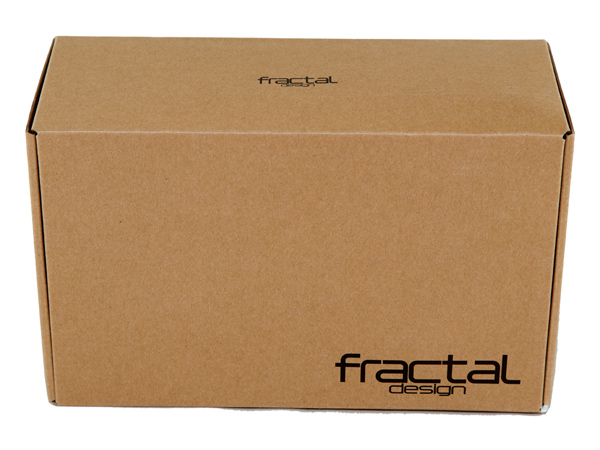
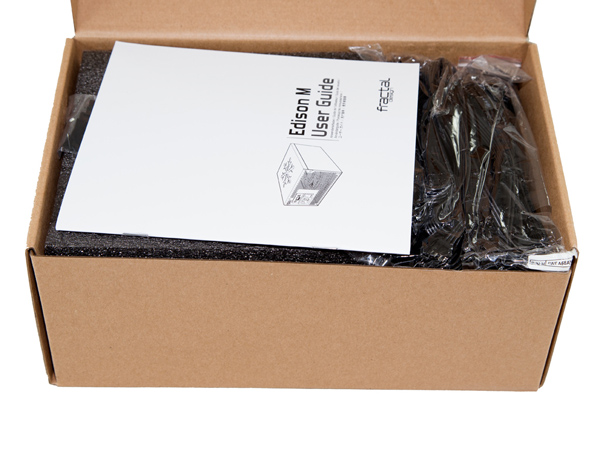
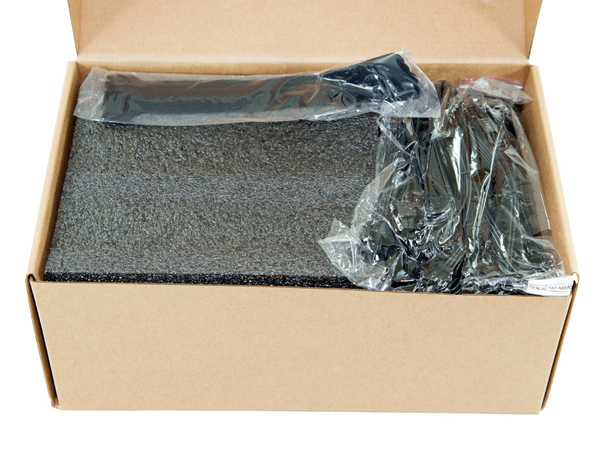
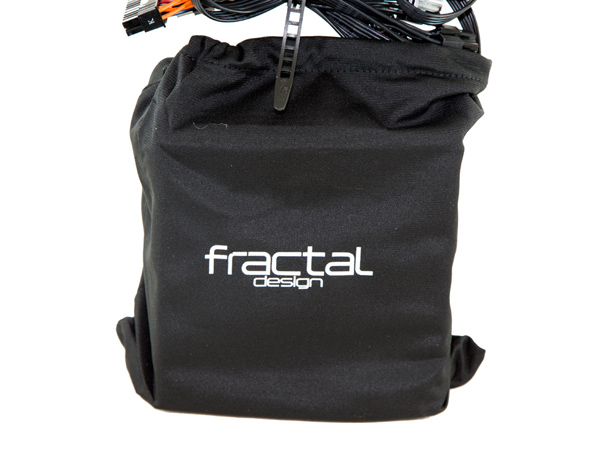
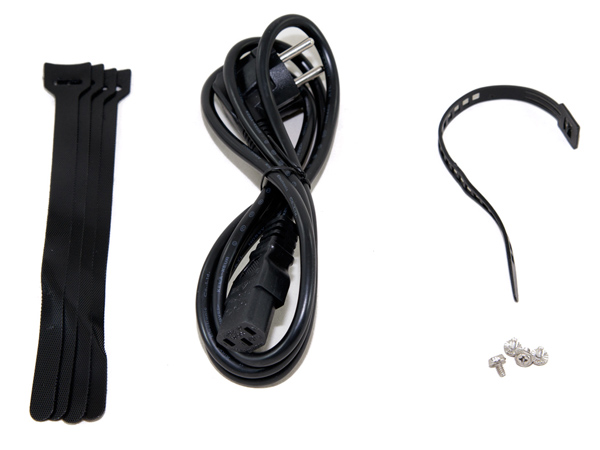
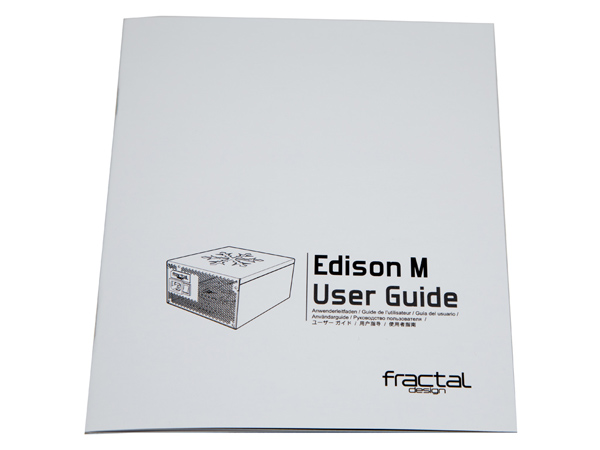
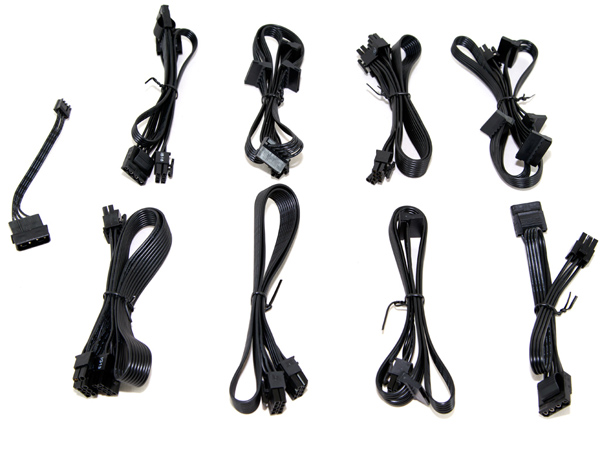
The contents of the box are protected by packing foam. And as is typical with Seasonic products, the PSU is stored in a cloth bag that can be used for storing the modular cables.
Besides the cloth bag, the bundle includes Velcro straps, a reusable cable tie, an AC power cord, a set of fixing bolts, the user's manual and modular cables.
Exterior
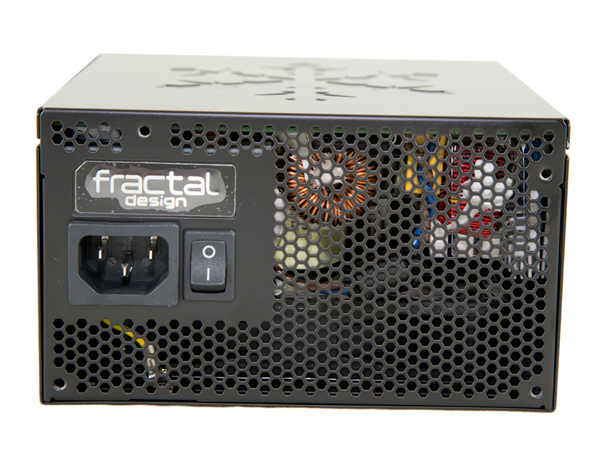
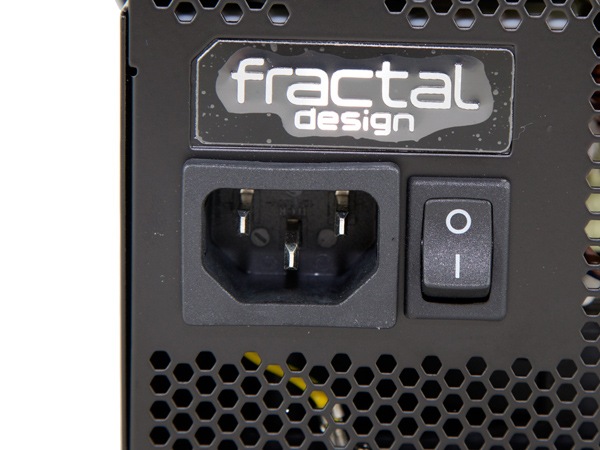
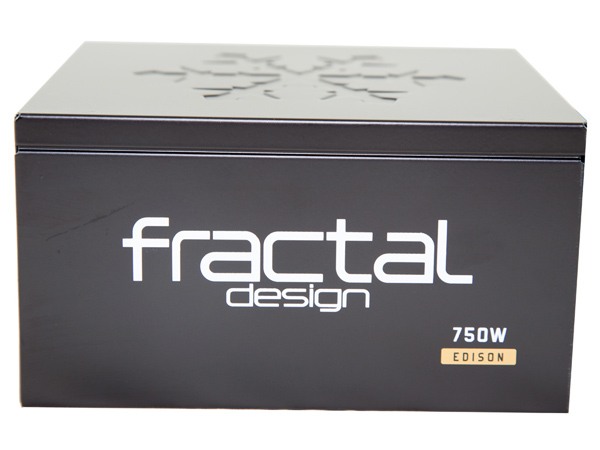
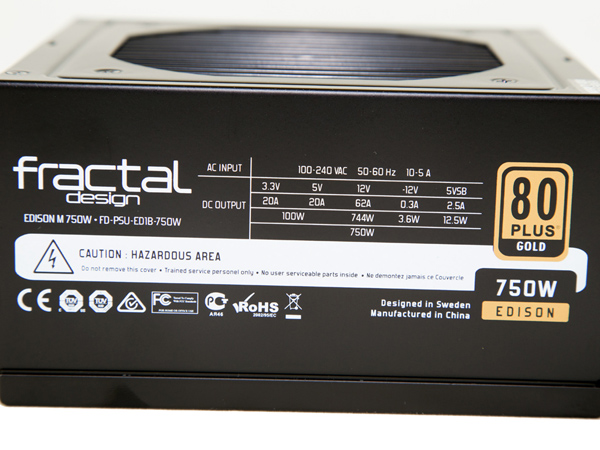
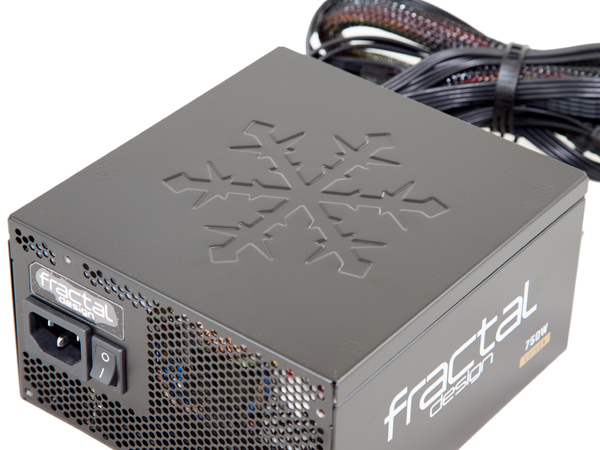
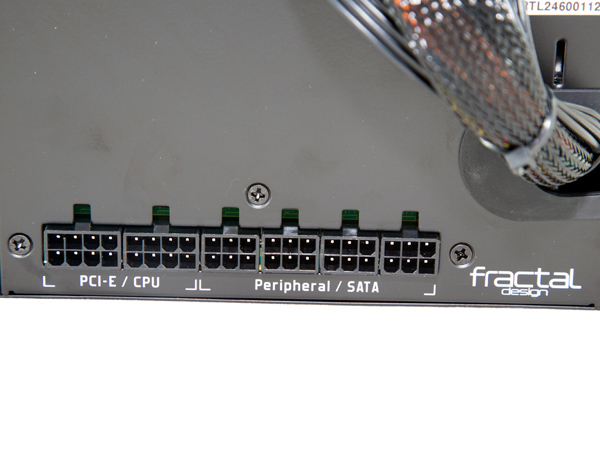
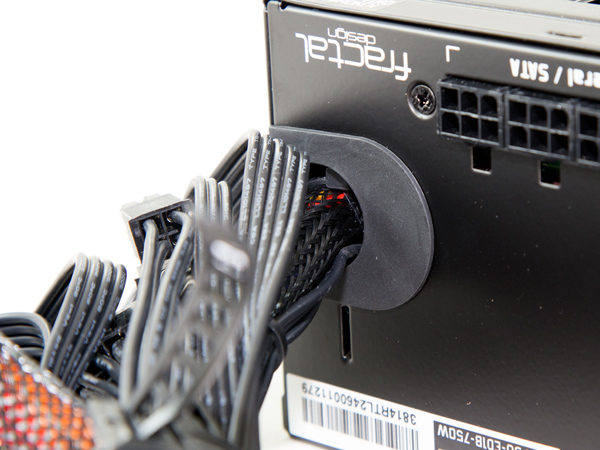
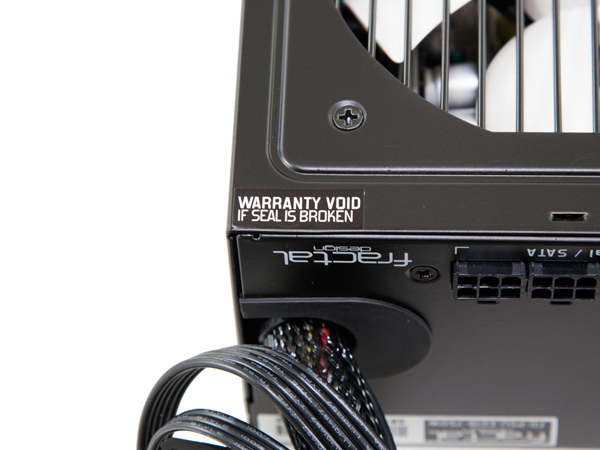
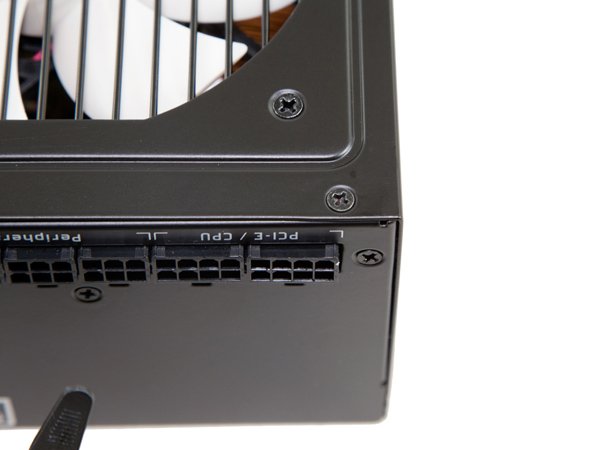
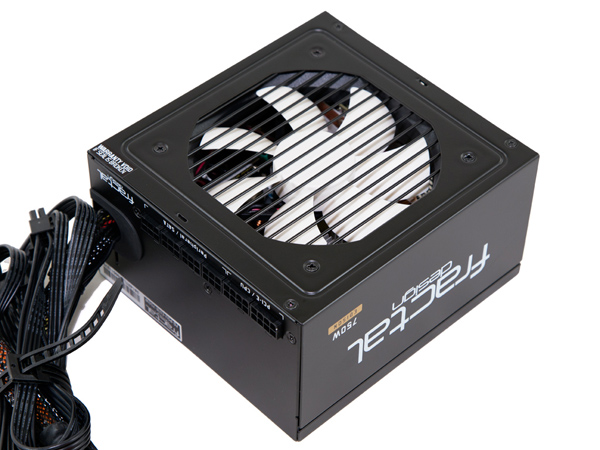
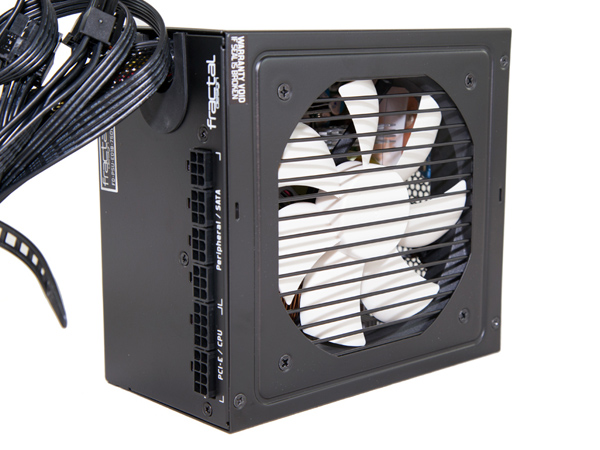
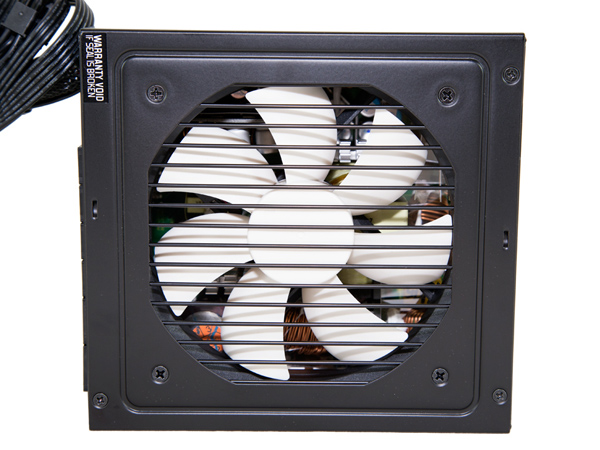
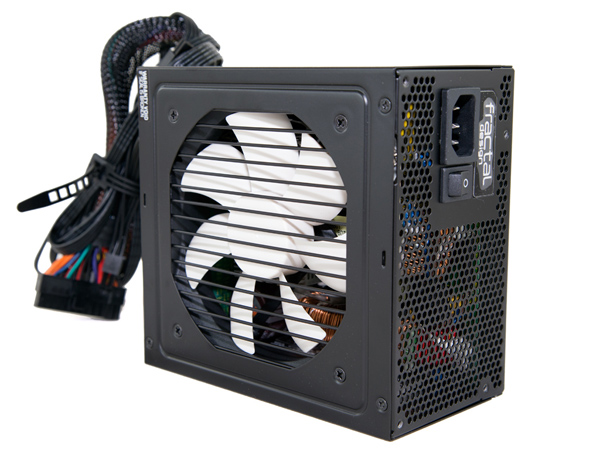
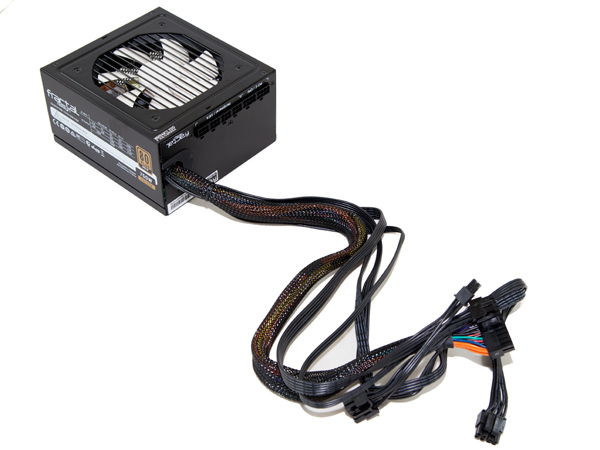
The PSU features a nice, semi-gloss finish and a stamped snowflake on the bottom, which represents Fractal Design's trademark. Overall, the chassis design is fairly typical. At the front we see a honeycomb-style exhaust grille along with a small on/off switch and the AC receptacle. At the sides, there are two stickers with the fist depicting Fractal Design's logo and the unit's model number, while the second shows the power specifications table.
The modular panel is quite small and includes only four six-pin and two eight-pin sockets, so you can either connect two PCIe cables or a single PCIe cable along with an EPS cable. There are also many native cables; besides the basic ATX and EPS cables, there's a cable hosting two PCIe connectors. Finally, a grommet around the cable exit hole protects the fixed cables from the casing edges.
The white fan looks good, creating contrast with the black chassis. This won't matter to you, but we anticipate some issues with testing since it's difficult (if not impossible) to measure the speed of a white fan with a tachometer.
Cabling
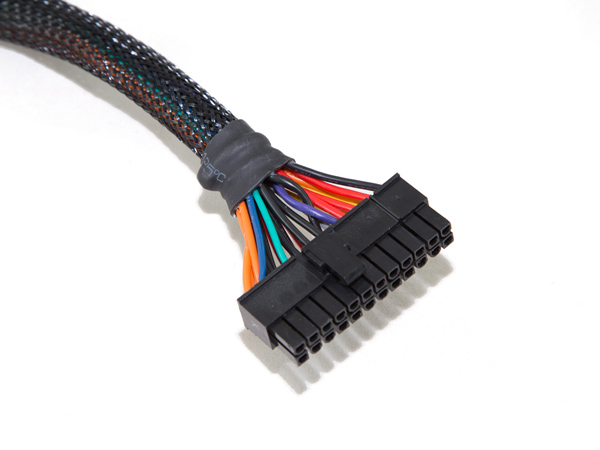
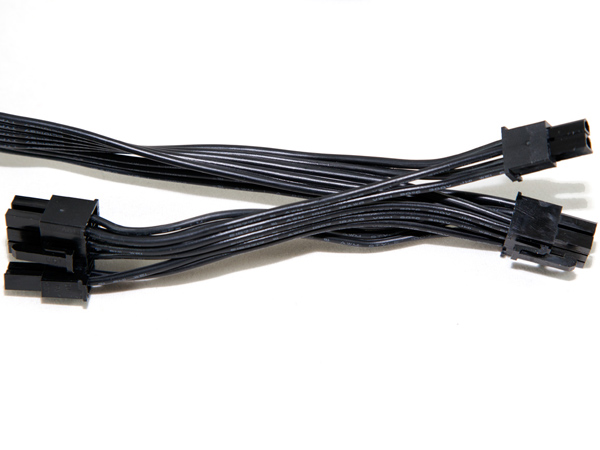
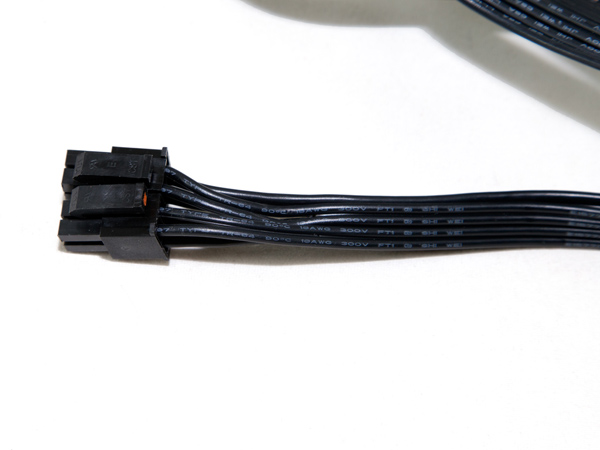
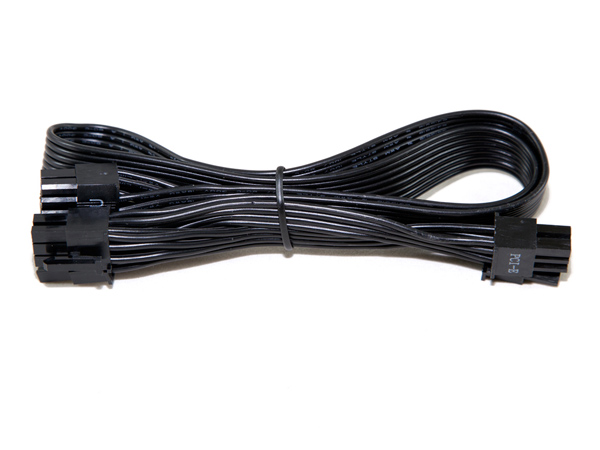
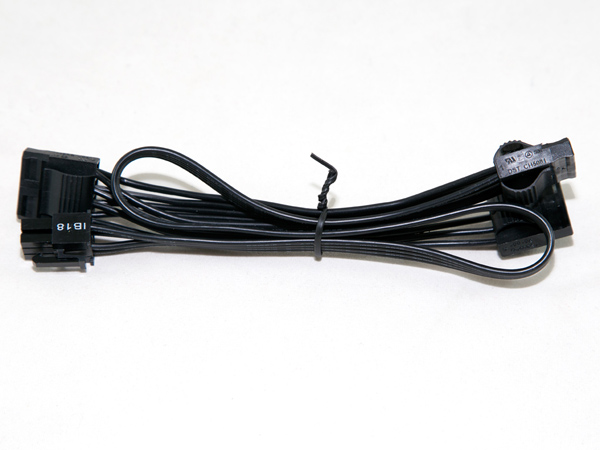
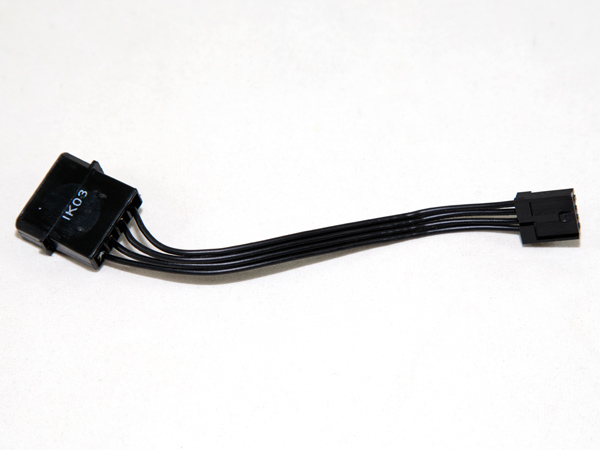
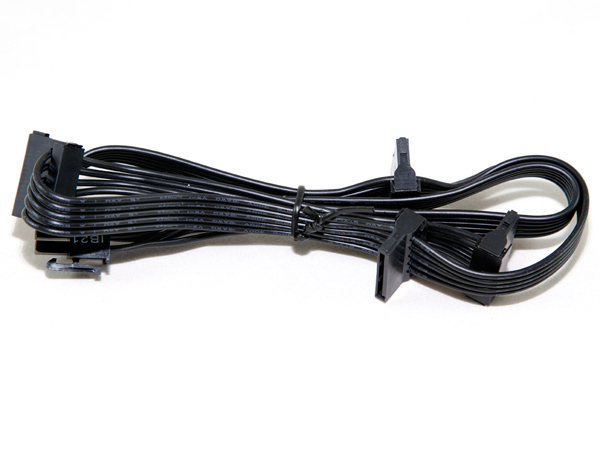
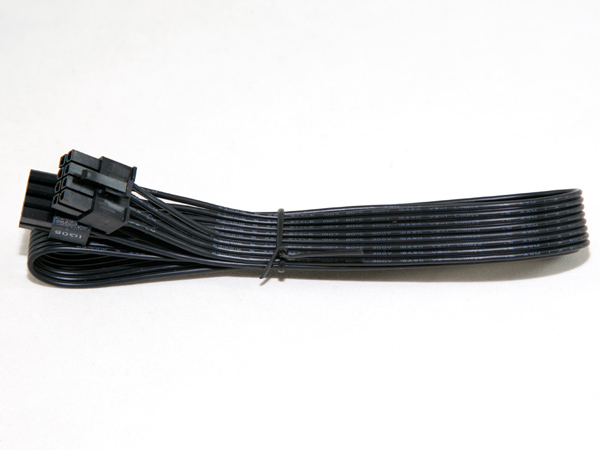
All cables except for the main ATX bundle are flat and stealth. We strongly believe that a PSU in this price range should have a stealth ATX cable, since now it looks like a foreign body on the PSU. Overall, cable quality is satisfactory and the flat cables block less airflow inside the chassis.
Get Tom's Hardware's best news and in-depth reviews, straight to your inbox.
Current page: Packaging, Contents, Exterior And Cabling
Prev Page Introduction Next Page A Look Inside And Component Analysis
Aris Mpitziopoulos is a contributing editor at Tom's Hardware, covering PSUs.
-
maxwellmelon there are several issues with there testing. first power good signal is not a good base for testing as its simple to "Cheat" the 16ms hold up.how about actually watching power good vs output voltages also. also the thermal camera scall changes every time how about using a fix scale as modifying scales leads to making things show hot that are not really that hot.Reply -
Aris_Mp First of all I measure AC loss to PWR_OK hold-up time since it is much easier to show it in my graphs and explain it. For me it is as easy to measure "AC loss to PWR_OK hold-up time" plus "PWR_OK inactive to DC loss delay" but I prefer it the way I do it.Reply
Also where do you base this? That the PG signal is simple to cheat and the manufacturers actually do this? From the moment the mainboards take seriously into account PG if this was the case then most likely there would be huge problems with lots of them. According to the ATX spec PG is de-asserted to a low state when any of the main rails falls out of 5% v. reg. Simply as that.
It just gives room for 1 ms till the PG signal sees the change at least in the ATX spec.
As for the thermal camera how it can show things hotter than it is? The scale is for this reason and from the moment the camera sees something from a different angle and a different region the scale is changing automatically. Nothing I can do about it. This is why I provide also actual temperature readings on all IR images.
-
PaulBags A quick opinion on the edison vs similar range seasonic own brand would be nice. Is it a new design, or an exact rebrand of a seasonic design? Quality of components vs?Reply -
Aris_Mp This is based on the same platform with the Seasonic G series and I state this in the "look inside" page. I haven't tested the G750 so far but I believe that since they are based on the same platform performance will be similar. Seasonic might used Enesol polymer caps (something that they usually do in their G units) instead of Chemi-Cons that Fractal chose, but both cap brands are very good so don't expect to see any real performance difference on them (although I prefer Chemi-Cons).Reply
So the design is nothing new and this is a Seasonic rebrand with minor differences at the internals (most likely the caps selection as I stated above). -
Aris_Mp Forgot to mention that besides caps the cooling fan is also different since on all Seasonic G units that I have tested so far have an ADDA double-ball bearing fan while the Edison PSU uses an FDB fan. However lately I noticed that many Seasonic units use Hong Hua FDB fans instead of ADDA double-ball bearing ones, so it is possible that this change might have affected the new bunches of G units.Reply -
Sakkura You say that you'd prefer if the unit was fully modular, but I don't really see the point.Reply
The fixed cables are the ones that will always be in use for any system using a 750W power supply, so the ability to disconnect those cables would not be beneficial. In fact it would lead to higher cost and also an extra point of failure and a slight loss of efficiency since a connector can never quite match an uninterrupted cable. -
Aris_Mp fully modular cables provide easier installation and cable management. Also you can easily change them with longer/shorter ones if you like or replace them in case there is a problem with them or simply you want something fancier.Reply
Loss of efficiency isn't a reason any more, on the contrary with bus bars or thick cables transferring power to the modular PCB energy losses can be minimized. In addition no cables block the secondary side caps, something that besides increasing their lifetime also allows for more relaxed fan profiles and better airflow inside the chassis.
Also the cost of a semi-modular to fully modular isn't high and in a 750 W PSU that costs 140 bucks already the cost reason doesn't stand (for fully modular design). -
Sakkura Reply
No they don't. The connector on the power supply end adds complexity and reduces cable flexibility.15924995 said:fully modular cables provide easier installation and cable management. Also you can easily change them with longer/shorter ones if you like or replace them in case there is a problem with them or simply you want something fancier.
You cannot easily change them because other cables are often incompatible - there is no common standard for modular PSU cables. Using incompatible cables can be downright dangerous. Here is a cautionary tale. -
Aris_Mp I didn't say that you can change them with anything, did I? Also it is common sense that every manufacturer uses their one design on modular cables. Thing is that with modular PSUs you can get an extra cable kit since most manufacturers sell one for their PSUs (e.g. Corsair, EVGA).Reply
Also I still cannot understand how the connector on the PSU end adds complexity and reduces cable flexibility! Cable flexibility depends on the gauges' thickness and not on the cables modularity design (or not).
Anyway I believe I made my opinion clear on why I prefer fully-modular PSUs.